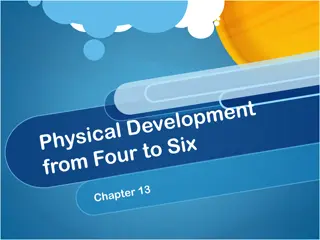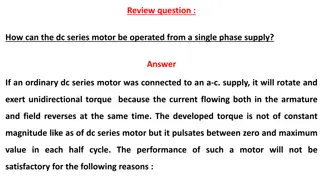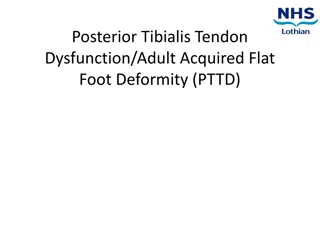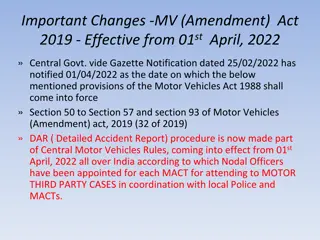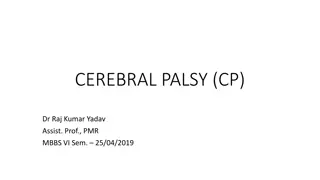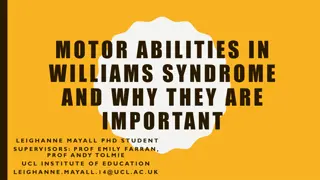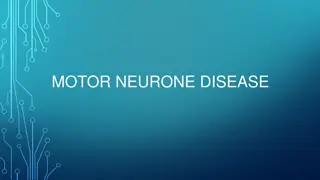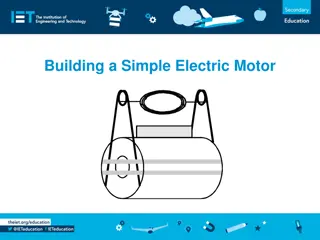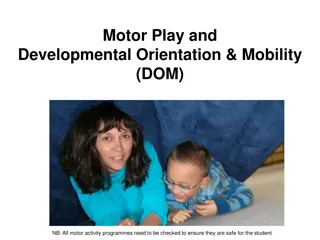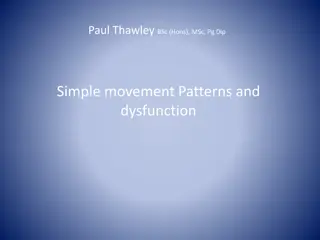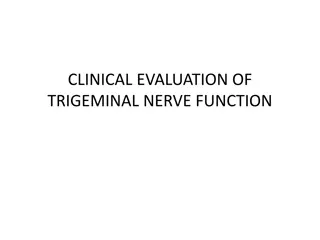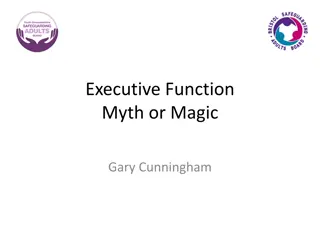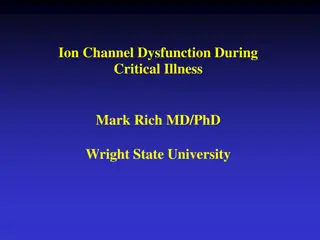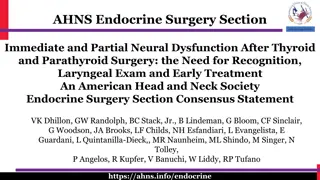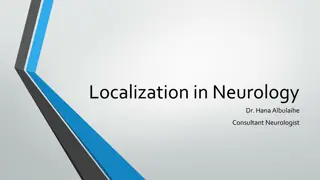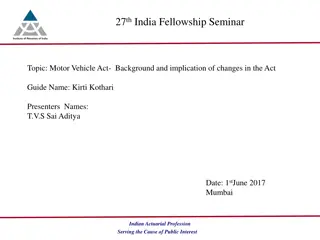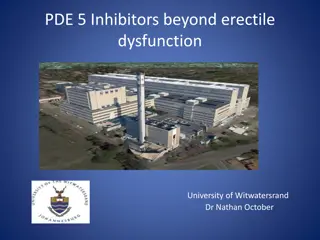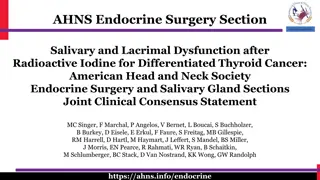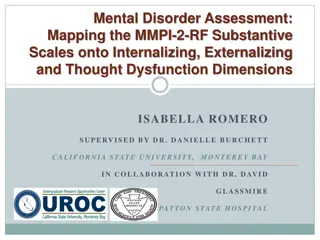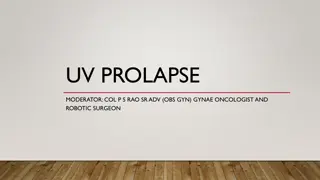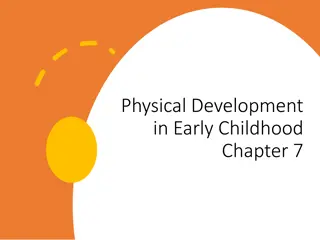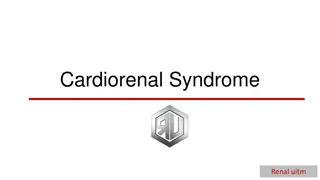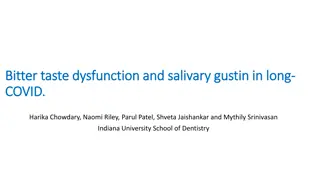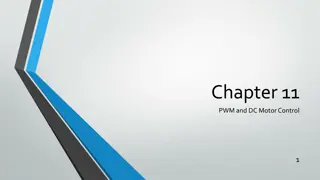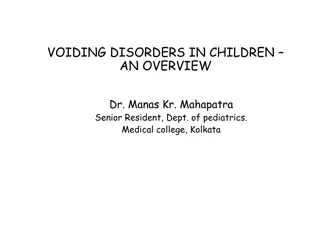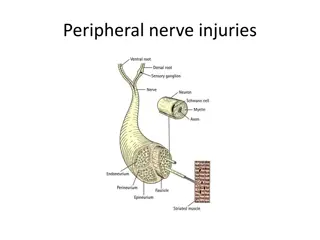Understanding Motor Proteins and Cytoskeletal Dynamics in Cell Biology
Motor proteins, such as myosin, kinesin, and dynein, utilize chemical energy to move along cellular tracks, influencing processes like muscle contraction, organelle movements, and cellular migration. With the ability to translocate using ATP hydrolysis, these proteins play crucial roles in various c
5 views • 14 slides
Controlling DC Motor using PictoBlox
Learn to control a DC motor using PictoBlox programming by setting the direction and speed of the motor, using a potentiometer and slide switch. Understand what a DC motor is, how it functions, and how to control its speed. Explore circuit diagrams, motor controlling blocks, and the process of contr
1 views • 20 slides
Unlocking the Motor Skill of Typing with Dr. Emily Williams
Delve into the world of motor skill acquisition through typing with Dr. Emily Williams, an expert in the field. Explore the research on how we learn motor skills, the importance of touch typing for children, and the benefits of touch typing websites for schools. Discover the difference between touch
0 views • 9 slides
Automatic Gate Motor Abu Dhabi
Maintenance UAE is the eminent company to get high-quality service for automatic gate motor Abu Dhabi - Automatic Gate Motor Repair Abu Dhabi
0 views • 10 slides
Automatic Gate Motor Repair Abu Dhabi
Maintenance UAE is the eminent company to get high-quality service for automatic gate motor Abu Dhabi - Automatic Gate Motor Repair Abu Dhabi
0 views • 10 slides
Development Milestones in Children Aged 4-6
Children aged 4-6 experience significant growth and development in various aspects including height, weight, posture, body shape, teeth, motor skills, and hand preferences. They exhibit noticeable changes in height and weight, improved posture and body shape, the emergence of permanent teeth, and ad
0 views • 17 slides
Operating a DC Series Motor from a Single Phase Supply
Connecting a DC series motor to an AC supply results in pulsating torque due to reversed current flow. This setup leads to inefficiencies and challenges such as eddy current losses and poor power factor. To improve performance, modifications like laminating core structures, using compensated winding
0 views • 23 slides
Understanding Posterior Tibialis Tendon Dysfunction (PTTD) in Adults
Posterior Tibialis Tendon Dysfunction, also known as Adult Acquired Flat Foot Deformity (PTTD), is a condition that affects the tibialis posterior tendon, leading to reduced arch support. Common causes include obesity, trauma, age, and existing health conditions. Symptoms may include ankle pain, swe
0 views • 12 slides
Motor Behavior and Skill Development Exam Review
Explore the nuances of motor behavior and skill development in this comprehensive exam review. Delve into subdisciplines, performance experiences, learning vs. performance assessment, effects of skill practice, and differences in motor skill performance between boys and girls during childhood.
0 views • 49 slides
Understanding Electromyography (EMG) and Motor Neurons
Electromyography (EMG) is an electrodiagnostic technique used to evaluate muscle health by measuring electrical activity. EMG measures muscle response to nerve signals, displayed as waves on an oscilloscope. Motor neurons transmit signals from the brain to muscles, enabling movement. Upper motor neu
2 views • 8 slides
Important Changes in Motor Vehicles Act 1988 and Motor Vehicles Amendment Act 2019
Central Government has announced amendments to the Motor Vehicles Act 1988 and Motor Vehicles Amendment Act 2019 effective from April 1, 2022. The changes include the implementation of Detailed Accident Report procedures, appointment of Nodal Officers for motor third party cases, and definitions rel
1 views • 18 slides
Understanding Sexual Dysfunction and Associated Factors
Sexual dysfunction encompasses a range of issues that can affect individuals, with causes including psychological, neurological, hormonal, and relationship-related factors. Evaluating sexual problems involves considering duration, context, and frequency. Psychological causes, such as anxiety and str
0 views • 25 slides
Understanding Sacroiliac Joint Dysfunction: A Comprehensive Guide
Discover the intricate anatomy of the spine, learn about the prevalence and causes of lower back pain, delve into the symptoms and diagnosis of sacroiliac joint dysfunction, and explore treatment options to manage this condition effectively.
0 views • 27 slides
Understanding Cerebral Palsy: Causes, Risk Factors, and Pathology
Cerebral Palsy (CP) is a clinical syndrome characterized by motor dysfunction and non-progressive brain damage affecting an immature developing brain. This article explores the definition, risk factors during prenatal, natal, and postnatal periods, and the pathology associated with CP, including dif
1 views • 38 slides
Innovative Agromate Device for Remote Motor Control
Control your motor from anywhere with the innovative Agromate telemetric device, enabling remote operation via a simple missed call. This device offers solutions to common farming challenges such as power cuts, wild animals, and rough weather. Agromate works with any service provider's SIM card and
0 views • 31 slides
Motor Abilities in Williams Syndrome and Their Importance
Motor abilities play a crucial role in the developmental journey of individuals with Williams Syndrome. From simple reflex movements to fine and gross motor skills, these abilities impact daily living, academic achievements, and overall cognitive and physical growth. Research on motor skills in both
0 views • 20 slides
MOTOR NEURONE DISEASE
Motor Neurone Disease (MND) is a rare condition affecting the brain and nerves, leading to loss of motor function. There is no cure for MND, and it can impact adults and children, causing symptoms like muscle weakness, speech difficulties, and changes in personality. The Irish Motor Neurone Disease
0 views • 7 slides
Building a Simple Electric Motor Experiment
Learn how to build a simple electric motor step-by-step, including winding the field coil, making end contacts, attaching to a battery, preparing the coil, and assembly. Troubleshooting tips are provided if the motor doesn't work. Experiment ideas include changing the motor's direction, radio interf
0 views • 8 slides
Effective Strategies for Children with Developmental Language Disorder, Sensory Processing Disorder, and Fine Motor Delays
Children with Developmental Language Disorder (DLD), Sensory Processing Disorder (SPD), and Fine Motor Delays often have accompanying sensory and fine motor deficits. Research indicates that addressing sensory processing deficits can significantly benefit children with DLD, ADHD, autism, and other d
0 views • 61 slides
Enhancing Development Through Sensory and Motor Play
Motor play and developmental orientation are essential for children, especially those with vision impairments. Encouraging movement and play helps in developing confidence, purpose, and motor skills. Activities like bouncing, crawling, and climbing aid in brain organization, spatial awareness, and e
1 views • 24 slides
Understanding Movement Dysfunction in Sports Medicine
Movement dysfunction in sports medicine can stem from various factors such as structural instability, loss of range of motion, functional rigidity, poor balance, and more. Clinical movement analysis plays a vital role in identifying muscle imbalances and guiding exercise interventions to enhance ath
0 views • 21 slides
Clinical Evaluation of Trigeminal Nerve Function
Sensory evaluation of trigeminal nerve function involves assessing exteroceptive sensations across its divisions, identifying sensory losses due to lesions, and distinguishing different types of lesions affecting sensation on the face. Motor evaluation focuses on the muscles of mastication to detect
0 views • 34 slides
Understanding Executive Functioning and Executive Dysfunction
Executive Functioning is a key aspect of cognitive function, encompassing various abilities such as planning, self-awareness, and emotion regulation. Executive Dysfunction, often resulting from frontal lobe injuries, can lead to difficulties in decision-making, social interactions, and learning. Thi
1 views • 21 slides
Understanding Ion Channel Dysfunction in Critical Illness
An intriguing case study presents a young male with weakness and coma in the ICU following pneumonia and sepsis. Nerve conduction results indicated critical illness myopathy and polyneuropathy, along with cardiac abnormalities. Reduced muscle excitability was attributed to a sodium channelopathy. Th
0 views • 14 slides
Understanding Vocal Fold Paralysis and Neural Dysfunction After Thyroid and Parathyroid Surgery
This consensus statement by the American Head and Neck Society Endocrine Surgery Section highlights the importance of recognizing immediate vocal fold paralysis (VFP) and partial neural dysfunction (PND) following thyroid and parathyroid surgery. The report emphasizes the need for early identificati
0 views • 17 slides
Addressing Cognitive Dysfunction in Patients with Cancer: Causes, Impact, and Treatment
Understanding cognitive dysfunction in cancer patients is crucial for improving quality of life and medical outcomes. This article explores the background, causes, screening, diagnosis, and treatment options for cancer-related cognitive impairment, emphasizing the historical perspective, prevalence,
0 views • 60 slides
Understanding Neurology: Localization, Neuroaxis Structures, and Motor Neuron Signs
Explore the intricate world of neurology with a focus on brain localization, neuroaxis structures, and the distinctions between upper and lower motor neuron signs. Delve into the functions of brain lobes, brain stem anatomy, and spinal cord functions. Discover how upper motor neuron signs indicate l
0 views • 52 slides
Implications of 2017 Motor Vehicle Act Amendment
The 2017 Motor Vehicle Act Amendment focuses on reducing road accidents, providing speedy treatment to victims, and establishing a Motor Vehicle Accident Fund. It introduces several key objectives, amendments, and insertions like e-Governance, higher penalties, and improvements in licensing. The ame
0 views • 16 slides
Exploring the Diverse Applications of PDE-5 Inhibitors Beyond Erectile Dysfunction
Discover how PDE-5 inhibitors go beyond treating erectile dysfunction, with approved and emerging compounds, alternative dose regimens, concentration sites, and potential targets like cardiovascular diseases and the central nervous system.
0 views • 47 slides
Developing Fine and Gross Motor Skills in Children for Effective Writing
Children's motor skill development is crucial for successful writing. Prior to writing, children need adequate muscle development, starting from gross motor skills to fine motor control. Activities and strategies for improving both types of motor skills are essential in preparing children for succes
1 views • 5 slides
Salivary and Lacrimal Dysfunction after Radioactive Iodine Treatment
Radioactive iodine (RAI) is commonly used in treating differentiated thyroid cancer but can lead to salivary and lacrimal dysfunction. This joint clinical consensus statement by the American Head and Neck Society Endocrine Surgery and Salivary Gland Sections highlights the importance of understandin
0 views • 20 slides
Understanding the MMPI-2-RF Substantive Scales for Mental Disorder Assessment
This research explores mapping the MMPI-2-RF substantive scales onto internalizing, externalizing, and thought dysfunction dimensions in mental health assessment. The study emphasizes the importance of validating assessments for accurate clinical pictures and effective treatment planning. It delves
0 views • 17 slides
Understanding Pelvic Floor Dysfunction and Prolapse in Women
Pelvic floor dysfunction and prolapse are common issues affecting women, impacting their physical and emotional well-being. Surgical treatment may be necessary for symptomatic cases, but a thorough evaluation of symptoms, obstetric history, and other factors is crucial. Addressing precipitating fact
0 views • 72 slides
Early Childhood Physical Development Overview
Physical development in early childhood encompasses growth in height and weight, brain development, gross motor skills, and fine motor skills. Children's bodies change significantly between ages 3 to 6, with notable improvements in motor skills and cognitive abilities. Gross motor activities such as
0 views • 15 slides
Understanding Cardiorenal Syndrome: A Complex Relationship Between the Heart and Kidneys
Cardiorenal Syndrome is a condition where dysfunction in one organ, whether acute or chronic, can lead to dysfunction in the other. This complex relationship involves intricate communication pathways between the heart and kidneys, impacting hemodynamic stability, organ perfusion, and neurohormonal i
0 views • 15 slides
Salivary Gustin and Taste Dysfunction in Long-COVID Patients
The research explores the association between taste perception and the duration of COVID infection in long-COVID and COVID-reinfection cases. Reduced salivary gustin levels correlated with lower taste scores in long-COVID patients. The study also found an increase in the bitter taste receptor gene e
1 views • 4 slides
Understanding Primary Ovarian Insufficiency: Definition, Pathophysiology, Clinical Features
Primary ovarian insufficiency, also known as hypergonadotropic amenorrhea, is a condition characterized by ovarian dysfunction in women under 40. It involves oligo/amenorrhea, elevated FSH levels, and impacts fertility and overall health. The pathophysiology includes follicle depletion and dysfuncti
0 views • 46 slides
DC Motor Control Techniques and Configurations
This chapter delves into various aspects of PWM and DC motor control, exploring characteristics of selected DC motors, rotation mechanisms, H-bridge configurations for motor direction control, logic configurations for motor operation, bidirectional motor control using an L298 chip, pulse width modul
0 views • 27 slides
Understanding Voiding Disorders in Children: An Overview by Dr. Manas Kr. Mahapatra
Voiding disorders in children, also known as bladder dysfunction, are a common issue affecting up to 40% of pediatric urology clinic visits. These disorders can indicate underlying pathophysiology requiring treatment to prevent renal or urologic damage. The development of urinary control by age 5 is
0 views • 53 slides
Understanding Peripheral Nerve Injuries and Pathological Classification
Peripheral nerves play a crucial role in transmitting motor and sensory impulses. Injuries to these nerves can result from various causes like ischemia, compression, traction, laceration, or burning, leading to a range of severity from transient dysfunction to complete interruptio...
0 views • 18 slides





